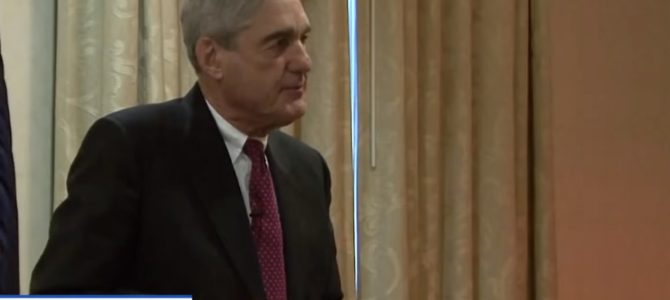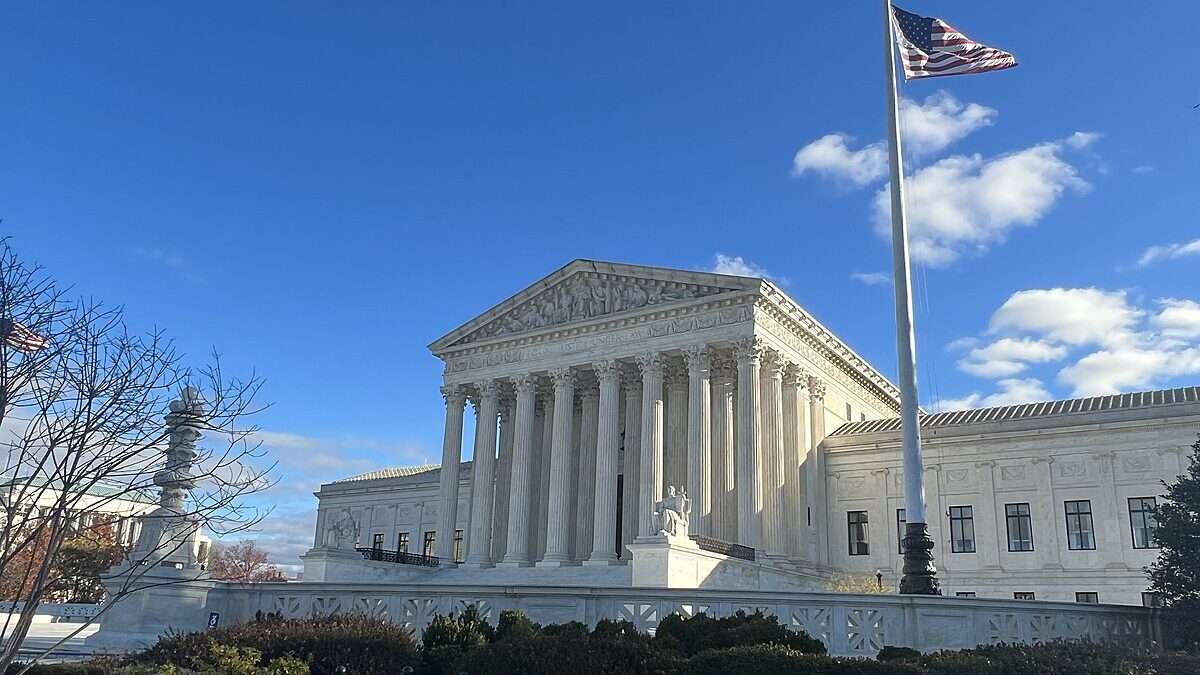
A few years back, I was sitting in federal court here in Manhattan, waiting for a jury verdict. To pass the time, I started quizzing Mike, the long-serving courtroom deputy, as to how long juries typically deliberated before reaching a verdict. While I didn’t specify, he focused his answer on criminal cases: “I’ve seen juries take as short as two hours and as long as two weeks to convict.” What about acquittals, I asked him? “Never seen one,” he responded.
Statistically, that’s the norm. The federal court conviction rate in 2015 was 99.8 percent; in 2014, 99.76 percent; in 2013, 99.75 percent. In 2015, there were 20 federal judicial districts with a 100 percent conviction rate; another 28 had only one defendant acquitted that year. You get the point: federal prosecutors have a series of inherent structural advantages.
The main bulwark to this is the defendant’s right to counsel, enshrined by the Founding Fathers in our Sixth Amendment: “In all criminal prosecutions, the accused shall enjoy the right … to have the Assistance of Counsel for his defence.” The right to counsel is the foundation upon which all other due process rests. We ought not to mess with it. Yet messing with it we are, all in the name of “the Resistance.”
How the Special Counsel Broke Attorney-Client Privilege
It has been long recognized that, for the right to counsel to have any value, clients must have absolute confidence in their ability to communicate confidentially with their lawyers, whether in person, by phone, or on email. That is what is known as the attorney-client privilege, and it is indispensable to the practice of law. After recent events, however, only a fool would place any trust in it.
Like most folks with day jobs, I do not generally follow the ins and outs of the special counsel investigation. But no attorney in America could possibly have missed last month’s news. The FBI, on referral from Special Counsel Robert Mueller, raided the office, home, and hotel room of Michael Cohen, the president’s personal lawyer, and hauled off “thousands if not millions” of pages of documents. In court filings, the feds further revealed that, for weeks prior to the search, they had been secretly reading Cohen’s emails as he was sending them.
Moreover, prosecutors apparently convinced a federal magistrate to issue this warrant on the flimsiest of pretenses—the so-called “crime-fraud exception” to the attorney-client privilege. If media reports are to be believed, Cohen is being investigated for one or more payoffs to old Donald Trump paramours, payments that, because they theoretically benefitted a candidate for president, could be deemed an unreported “in-kind” campaign contribution.
Clever theory, I suppose. The jury did not think much of it when the federal government used it to criminally prosecute former U.S. senator and presidential candidate John Edwards, based on his rent payments for his baby mamma’s apartment. The senator beat the rap and is back practicing law.
I suppose the feds can try again, if they like. But what part about that potential prosecution justified the government raiding an entire law office and hauling off all the client files for prosecutors to snoop through? One can argue over its legal significance, but the fact of the payment itself is not in dispute. Nor is the purpose for which it was made.
Why Breaching Attorney-Client Privilege Is Horrifying
I have discussed this issue with dozens of lawyer colleagues. They are, to a man or woman, horrified. Yet aside from Alan Dershowitz, the legal press has been strangely short of outrage. The American Civil Liberties Union actually went so far as to publish an article defending the raid.
Dershowitz, as usual, hits the nail on the head: “the very fact that this material is seen or read by a government official constitutes a core violation [of the Sixth Amendment]. It would be the same if the government surreptitiously recorded a confession of a penitent to a priest, or a description of symptoms by a patient to a doctor, or a discussion of their sex life between a husband and wife. The government simply has no right to this material.”
He is plainly correct. So why the silence? It is fairly obvious: the fear of being next. If you are an attorney, and the government comes and takes away all your client files to be snooped through by FBI agents, then your law practice is kaput. Sure, you can sue to retrieve the files, but it will ultimately prove pointless. No client will ever trust you again.
The bar’s silence is both dubious and self-defeating. This should not be about Trump. The president is one of the richest men in the world. He can well afford to vindicate his rights through the judicial system. But the rest of our clients, now that this precedent has been set, will not be so fortunate. If we actually care about them, and about our profession, then we ought to draw a line in the sand here and now. The privilege must be defended.
As the Supreme Court has explained, the attorney-client privilege exists to encourage “full and frank communication between attorneys and their clients and thereby promote broader public interests in the observance of law and the administration of justice.” It is not a new concept. According to John Henry Wigmore: “The history of this privilege goes back to the reign of Elizabeth [i.e., 1533-1603], where the privilege already appears as unquestioned.”
At a minimum, we ought not to dispense with this centuries’ old tradition without at least some discussion. So here are my two cents. Political battles should be fought in the political realm, not in the legal one. This is, of course, not the first political spat to intrude into the courts, but it is far and away the most serious infringement of the latter by the former.
Back When Judges Looked Askance At This Sort of Thing
Folks my age and older will remember the ‘90s edition of Mueller, another budding Inspector Javert named Ken Starr. Starr was originally tasked with investigating a shady Clinton land deal but ended up stinging a White House intern into confessing an illicit relationship with the president. He then produced a salacious report that needlessly humiliated and traumatized a young woman, who still seems not to have fully recovered.
But even Starr never raided a law office. At least not that of a living lawyer. He did try to grab the privileged communications of a deceased one: Deputy White House Counsel Vincent Foster. At some point, Starr moved beyond the land deal and took to investigating President Clinton’s firing of the White House’s travel staff, a ridiculous endeavor if ever there were one. When the investigation began, Foster turned to the law firm of Swidler Berlin for legal advice. Nine days later, he took his own life, launching a decade’s worth of conspiracy theories. Starr then tried to subpoena Foster’s privileged communications.
(Full disclosure: through a dizzying series of mergers, Swidler Berlin ultimately came to be Borged into the Morgan Lewis firm, a collective at which I was once a partner. To the extent this matter was ever water cooler talk around the firm, I was not a witness to it.)
The case went all the way up to the Supreme Court, with Starr arguing that attorney-client privilege should be interred with the client’s bones. In a 6-3 decision penned by Chief Justice William Rehnquist, the Supreme Court disagreed. According to the High Court, the attorney-client privilege was so sacrosanct to our legal system that clients must be assured even of its posthumous application: “Knowing that communications will remain confidential even after death encourages the client to communicate fully and frankly with counsel.”
In an amicus brief, the esteemed American College of Trial Lawyers went even further, arguing that the elimination of the posthumous privilege would be a sort of slippery slope “paving the way for elimination of the privilege in a wide variety of additional contexts.” Despite the Supreme Court’s ruling, we now lie at the bottom of that slope.
The Client, Not the Attorney, Owns the Privilege
For the most part, legal commentators have cheered. For example, the former U.S. attorney for the Southern District of New York, Preet Bhahara, who is widely believed to have further political aspirations, tweeted out: “Long live the crime-fraud exception.”
Bhahara may still be stinging from his abrupt termination by the president, but there is no excuse for the rest of the bar. Certainly not the “crime-fraud exception,” which has been the subject of more recent media blather than any other legal term in recent memory. The concept is basic: a client who communicates with his or her attorney for the furtherance of a future crime (as opposed to the defense of a past crime) will be shorn of the privilege.
The attorney, in such instance, has become a criminal co-conspirator with the client. Think Saul from “Breaking Bad,” who routinely advised his client Walter White on how to expand his meth operation.
The crime-fraud exception is an exceedingly narrow exception that courts have applied in only the rarest and most extreme of circumstances. The privilege is not removed simply because the attorney has committed a crime. It is the client, not the attorney, who owns the privilege, and he or she is not to be punished for attorney misconduct of which he or she was not involved. It certainly is not removed merely because criminal acts are discussed. Indeed, that would put the entire criminal defense bar out of business, and negate the Sixth Amendment.
Nobody Should Judge In His Own Case
In these cases, the most important question is always Who gets to judge what falls within the exception? Here we arrive at the most extraordinary aspect of the Cohen affair. The prosecutor’s office has declared that it gets to decide, by having the materials first reviewed by a so-called “taint team” of fellow prosecutors and FBI agents supposedly uninvolved with the case. In other words, their colleagues from down the hall. The whole thing is absurd.
It is also illegal. The Supreme Court, in a unanimous 8-0 decision in a case called United States v. Zolin, held that the applicability of the crime-fraud exception to privileged materials is to be adjudicated through an in camera inspection by the presiding judge. The 1989 decision seems to have been lost to the mists of time, as no one has yet cited it in the Cohen case. But it remains governing law and sound precedent.
Even at the district court level, the use of “taint teams” has met consternation from many judges, and the judge assigned the Cohen case, Kimba Wood, to her credit, quickly rejected their use in this case. (More disclosure: Many years ago, Wood appointed me as receiver to oversee the liquidation of a failed broker-dealer firm.)
Welcome to the Tabloids, People the FBI Doesn’t Like
Wood, who is no stranger to a political witch hunt, has handled the matter in an exemplary manner, assigning a retired federal judge, Barbara Jones, as special master to review the privileged materials. But the court order only cures the injury going forward. What about the weeks the FBI already spent peering into Cohen’s emails before conducting its raid? As the Supreme Court explained in Maness v. Meyers, once privileged materials are disclosed, the court cannot “unring the bell.” Knowledge, once known, cannot be forgotten.
Unfortunately, Wood waved off such concerns. “I have faith in the Southern District U.S. Attorney’s Office,” she said. “Their integrity is unimpeachable.” That is nice of her to say, but it flies in the face of reality.
In the very weekend Wood was considering Cohen’s TRO application, a series of tabloid-worthy stories from Cohen’s files came flooding out, cited to persons with “knowledge of” the privileged materials—presumably one or more members of the supposedly unimpeachable “taint team.” Nor is this an aberration. The leaks spewing out of the special counsel’s Paul Manafort prosecution have been so extensive that Manafort’s attorneys have demanded the judge investigate.
The common thread here is Robert Mueller. Space prohibits me from delving into Mueller’s long, strange career. Suffice it to say that he is emblematic of that peculiar DC phenomenon known as “failing upward,” whereby every act of corruption and incompetence ends in a promotion.
Is Mueller Solving More Crimes Than He’s Committing?
In any event, the problem is bad enough merely focusing on the present. The special counsel’s investigation reminds one of that old Christopher Hitchens saw: The true measure of a police department is does it solve more crimes than it commits?
Mueller certainly flunks that test. Unless respected mainstream media sources are routinely fabricating sources and stories, Mueller’s team have committed a slew of crimes. As the Department of Justice—the agency that vested Mueller with his prosecutorial authority—explains on its own website, the unauthorized disclosure of grand jury information is illegal and punishable under a number of criminal statutes, such as 18 U.S.C. § 1503.
That is all well and good. But when was the last time the feds prosecuted a prosecutor for leaking grand jury evidence? Has it ever happened?
The leaks are only part of the problem. The bigger issue is the underlying criminality of the investigation itself. An onscreen prostitute allegedly got paid $130,000 to stop her from spilling the beans. There is a crime there, but curiously not the one being investigated.
In New York, the crime is called “Larceny by Extortion.” It is a class B felony punishable by up to 25 years in prison. Under N.Y. Penal Law 155.05(2)(e)(v): “A person obtains property by extortion when he compels or induces another person to deliver such property to himself or to a third person by means of instilling in him a fear that, if the property is not so delivered, the actor or another will … [e]xpose a secret or publicize an asserted fact, whether true or false, tending to subject some person to hatred, contempt or ridicule”
Seems fairly on the nose. But if the prostitute’s lawyer is to be believed, Mueller is in active collaboration with the extorter against the victim. Also, on “referral” from Mueller, the U.S. Attorney’s Office has now undertaken an egregious breach of privilege. In other words, the special counsel’s investigation has become, in itself, a criminal enterprise.
This Is More Important Than Today’s Events
The main victim is our justice system. I am a lifelong registered Democrat, but this is more important than mere partisanship. There will be an endless number of political spats in the future, but trust in the law, once destroyed, will not easily be restored.
The time has come for the federal judiciary to step up and save the Sixth Amendment. (Along with the Fifth Amendment which, through its due process clause, extends the right to counsel to all civil matters as well.) It has a straightforward way of doing so: throw out every case in which the government has infringed the right to counsel.
That would not be unprecedented outcome. In the early 2000s, the giant accounting firm KPMG found itself under criminal investigation for an alleged wide-ranging tax evasion conspiracy. The government indicted 17 former partners and employees of KPMG. It also threatened to indict, and thereby destroy, KPMG itself. In so doing, it coerced KPMG to cut off its payment of the legal fees of the indicted KPMG employees, despite a corporate indemnification that required such payment. As a result, four of the defendants were deprived of counsel of their choice altogether, and the rest were limited in their ability to stage a full defense.
Unfortunately for the government, the case came to Judge Lewis Kaplan, a no-nonsense Manhattan federal judge who quickly came to appreciate how the government’s conduct imperiled the constitutional right to counsel. While acknowledging the significance of the alleged crimes in that case—charges far more serious than the click-bait and other nonsense Mueller is pursuing—Kaplan, “with the greatest reluctance,” threw out the indictments.
Kaplan’s opinion should be required reading for the entire federal judiciary today:
This indictment charges serious crimes. They should have been decided on the merits as to every defendant. The Court well understands, moreover, that prosecutors can and should be aggressive in the pursuit of the public interest. It respects the distinguished record of the United States Attorney’s Office for the Southern District of New York [USAO], which long has been, and continues to be, a model for the nation.
But there are limits on the permissible actions of even the best prosecutors. As the Supreme Court wrote long ago, a prosecutor ‘is the representative not of an ordinary party to a controversy, but of a sovereignty whose obligation to govern impartially is as compelling as its obligation to govern at all; and whose interest, therefore, in a criminal prosecution is not that it shall win a case, but that justice shall be done. As such, he is in a peculiar and very definite sense the servant of the law, the twofold aim of which is that guilt shall not escape or innocence suffer. He may prosecute with earnestness and vigor — indeed, he should do so. But, while he may strike hard blows, he is not at liberty to strike foul ones. It is as much his duty to refrain from improper methods calculated to produce a wrongful conviction as it is to use every legitimate means to bring about a just one.’
…[T]he USAO … deliberately or callously … foreclosed these defendants from presenting the defenses they wished to present and, in some cases, even deprived them of counsel of their choice. This is intolerable in a society that holds itself out to the world as a paragon of justice. The responsibility for the dismissal of this indictment as to thirteen defendants lies with the government.
The Cohen affair presents a set of circumstances every bit as egregious as those that caused Kaplan to conclude that his only choice was to toss indictments. Here, the same USAO that Kaplan deemed “a model of the nation,” at the instigation of the special counsel’s office, brazenly spied on what it knew to be attorney-client communications.
In so doing, it has seemingly run roughshod over the rules governing our profession. To name one example, Ethics Opinion 318 of the DC Bar, the jurisdiction wherein Mueller practices, requires that an attorney who obtains a document that is privileged on its face, without authorization from the opposing party, must refrain from reviewing and using it.
In his obsessive pursuit of the president, Mueller has plainly employed this and other improper means to deprive Trump of his right to the counsel of his choice. The precedents set for Trump today will apply tomorrow to all Americans. For the good of us all, any prosecution brought by, or on referral from, Mueller should be dismissed.









